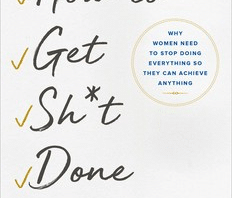
Losing weight can be difficult under any circumstances, but it can be especially difficult when you aren’t feeling happy with yourself or your progress. The reality is, though, that being down on yourself or what you have accomplished so far can end up making the process even harder. The good news is, though, that you don’t have to feel stuck in this situation. There can be many ways to change your outlook and start feeling more positive about the steps you’re taking to be healthier and happier.
Try New Things To Get a Boost
Whether you just started working out and dieting and aren’t seeing the progress that you thought you would, or you’ve been doing it for a while and have hit a plateau, it can be easy to feel discouraged when you aren’t meeting your goals on the timeline that you wanted to. In this kind of situation, finding new ways to give your efforts a boost can be helpful.
One way to do this is to try a supplement. Whether you opt for a comprehensive multivitamin to fill in nutritional gaps in your diet and provide you with more energy, or for a supplement that might have weight loss supporting properties, a supplement can be a simple way to give yourself a boost. Before selecting a supplement, though, it can be a good idea to do your research by reading le-vel thrive reviews so that you have an idea of what a supplement can accomplish for you.
Make a Big Deal Out of Small Successes
Another way to stay positive even when you don’t feel things are going as well as you want them to is to start adjusting how you look at your accomplishments. The trap that many fall into is setting high goals and then getting upset when they fail to reach them quickly. They may be so set on these high goals that they fail to recognize all of the progress they have made. By celebrating all the things you have accomplished, even if they seem small, you can be better aware of just how far you have come, and have confidence that you can keep making more positive changes.
Embrace Your Flaws
Sometimes, even when weight loss is going well, some may still not feel as happy about their progress as they would like. This can be because they thought that weight loss would change everything, and remove their insecurities. The truth is, that even after weight loss, you will be the same person and even if you feel better about your weight, you will still have many of the same insecurities that you had before. By learning to accept your insecurities, even if you don’t like them, you can release some negative feelings that may be holding you back from truly enjoying the positive changes you’ve been making.
Don’t Go By the Scale
Letting your mood for the day depend on the number you see on the scale can be a recipe for discouragement, especially when you are working hard to lose weight. What some don’t realize is that your body weight can fluctuate due to many factors, and that even if you are eating well and exercising regularly, the scale may not always show the progress that you are actually making.
One cause of this is that if you are exercising, you can end up gaining muscle, which can make your weight go up, even though you are improving your physique and overall health. Water weight can be another culprit, and a slow digestion can be another. The less that you focus on the scale and more on maintaining good daily habits, the faster it will feel like you are meeting your goals.
The Bottom Line
Losing weight is rarely easy. Not only that, but it can be even more difficult if you’re feeling discouraged about your progress. The good news is, though, that by doing things like giving yourself a boost when you hit a plateau and not letting your mood be dependent on what the scale says, you can start feeling better about your progress today.
The post How To Stay Positive While Losing Weight appeared first on Pick the Brain | Motivation and Self Improvement.
>









 Most of us know the tug of a new SMS message or a notification from Facebook which comes with the ever-present smartphone. But most of us don’t know – until it’s taken away – how powerful that tug really is. I recently left my phone in the Athens airport: for at least a few weeks, I went to sleep without a phone beside me.
Most of us know the tug of a new SMS message or a notification from Facebook which comes with the ever-present smartphone. But most of us don’t know – until it’s taken away – how powerful that tug really is. I recently left my phone in the Athens airport: for at least a few weeks, I went to sleep without a phone beside me.




